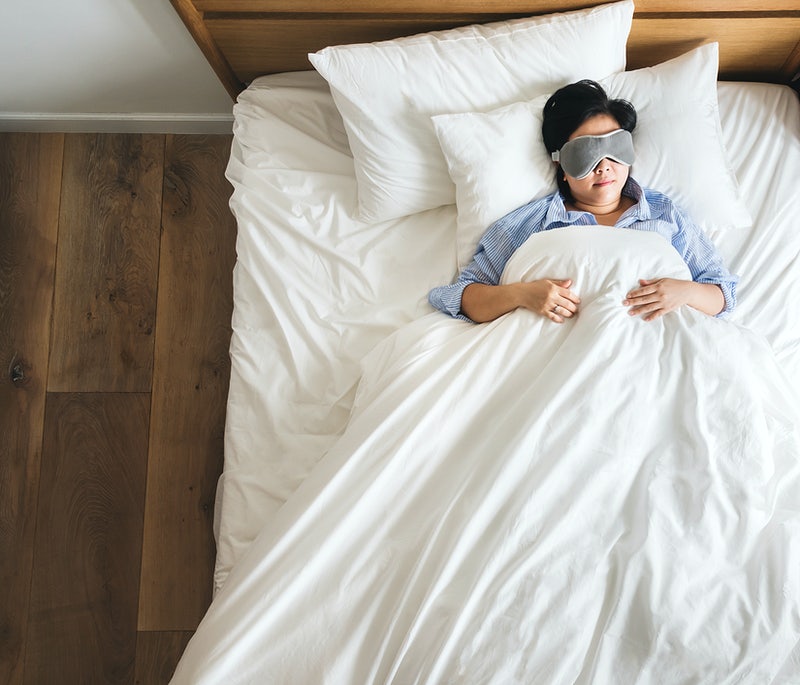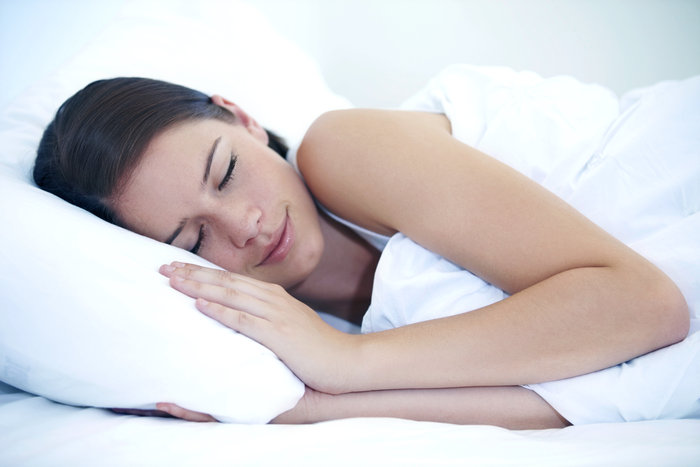
Guide to Getting Better Sleep
Ultimate Guide to Sleep Hygiene to improve energy, excel in your fitness goals and create a positive mindset.
What is sleep hygiene and why is it important?
Sleep hygiene is a series of healthy sleep habits that can improve your ability to fall asleep and stay asleep. But why do sleep habits matter when we’re talking about fitness?
Approximately 50-70 million adults in the United States have sleep-related issues. Poor sleep can affect you both short-term and long-term. Some concerns that arise from poor sleep include decreased brain function, hormonal imbalances, decreased productivity and performance, poor immune and insulin responses, and more. Sleep is imperative to repair both your mind a body.
Let’s break down these issues that arise from poor sleep. When you are sleep deprived, the following day you may experience fatigue, decreased brain function, and a decrease in productivity and performance. Goodbye motivation! Without that motivation, you are more likely to skip the workout, grab convenient foods instead of healthy foods, or not put 100% into the workout you do. One bad night of sleep isn’t going to derail a healthy lifestyle. However, if this becomes a chronic issue then poor lifestyle habits and weight gain becomes inevitable.
So, what about hormonal imbalances, poor immune response, and poor insulin responses? Poor sleep increases hunger and blood sugar. The body is not able to appropriately respond to insulin. All of this combined again leads to unhealthy food choices, an increase in caloric intake, and results in metabolic disorders.
So by now, we can see how poor sleep can sabotage our health and fitness goals. Read on to learn tips on how to practice good sleep hygiene which can result in a better quality of sleep.
Tips on establishing good sleeping habits
Start by keeping a sleep diary
- I recommend logging your sleep patterns for 1 week to a month. This will help you better understand how you are sleeping and pinpoint things in your life contributing to poor sleep.
- Write down what you did during the hour leading up to bedtime, how you are feeling, and what time you went to bed. In the morning, log what time you woke up and how you slept (ie. Were you tossing/turning, waking up to use the bathroom, etc).
Keep a consistent sleep schedule
- Go to sleep and get up at the same time every day, even on weekends or during vacations.
- This will help your body’s internal clock adjust to sleeping at night.
Set a bedtime that is early enough for you to get at least 7 hours of sleep
- Use an alarm on your phone to remind yourself to go to bed if needed
If you don’t fall asleep after 20 minutes, get out of bed
- Laying restless in bed is not conducive to sleep. Get out of bed, try some relaxing yoga stretches then try to go to sleep.
Establish a relaxing bedtime routine
- Try reading, journaling, taking a bath, yoga and stretching, or meditation.
Use your bed only for sleep and sex
- As tempting as it might be, don’t binge-watch Netflix with a bowl of popcorn in bed (speaking from experience here).
Make your bedroom quiet and relaxing; keep the room at a comfortable, cool temperature
- Diffuse lavender oils or spray your pillow with lavender to help you relax, use a fan if needed, hang curtains to keep out light, and use a sound machine if you need to block out sound.
Limit exposure to bright light in the evenings and turn off electronic devices at least 30 minutes before bedtime
Don’t eat a large meal before bedtime
- If you are hungry at night, eat a light, healthy snack.
Exercise regularly and maintain a healthy diet
- No brainer here!
Avoid consuming caffeine in the late afternoon or evening
- Cut off all caffeine before 4 pm.
- Limit caffeine intake during the day as well.
Avoid consuming alcohol before bedtime
- Alcohol will spike your blood sugar.
- Regularly consuming alcohol plays a huge role in detracting from your fitness goals. Consume in moderation or not at all.
Reduce your fluid intake before bedtime
- This will prevent you from getting up several times at night to use the bathroom.
Final thoughts
Many scientific studies have been done on sleep to show the benefits of good sleep hygiene practices and the negative impact that poor sleep has on our lives and fitness goals. However, the tips presented here are not hard and fast rules when it comes to sleeping well at night. Each individual is different and we all have different schedules that play a role in our routines. This guide is meant to help you learn new ways to change your habits to help facilitate success in other parts of your life. In the end, you know yourself best so do what works for you!

Sleeping beauty
If you have thoughts or questions about this guide, please contact Melissa Welsh at [email protected].
Resources:
http://sleepeducation.org/essentials-in-sleep/healthy-sleep-habits
https://www.acefitness.org/education-and-resources/lifestyle/blog/6955/the-power-of-sleep/



